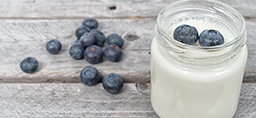
Food is an integral part of our daily lives.
We require it for nourishment and energy and it can also be used to create an enjoyable culinary experience shared with family and friends.
As food science continues to evolve, we learn more and more about how certain foods affect the body and mind.
Evidence shows how our eating habits—the types of food we eat, how much we eat, the timing of our meals and so on—can significantly impact our mood and behavior through certain metabolic processes and chemical changes in the brain.
So, with that in mind: Is it possible to change our diet to promote greater happiness?
Without a doubt.
Here are some tips on how to better manage your mood with nutrition:
Be carb-smart
Your approach to carbohydrates should bear in mind two principles: Eat healthier carbs and limit your intake of refined carbohydrates.
Hangry, a portmanteau from the words hungry and angry, is a handy term that describes how people feel when they haven’t eaten in a while. If you haven’t eaten in some time and you start to become irritable and short-tempered with others, you’re hangry.
One of the biggest contributors to this feeling is a drop in blood sugars, or blood glucose.
Concentrated sources of sugar—candy, syrups, sodas—can cause blood sugars to rise and fall quickly, leading to that hangry feeling.
Refined carbohydrates such as white breads, crackers or white rice contain starches and sugars that have been altered from their natural state by processing. These can also cause rapid fluctuations in our blood sugar level because they break down quickly in the digestive system.
So what’s the solution? First off, don’t skip any meals. Eat your meals at regular intervals to help regulate blood sugars.
Choose whole grain versions of foods instead of their refined counterparts. The higher fiber content in whole grains allows your body to digest them slowly, which can stabilize blood sugar.
Also, limit your consumption of added sugars to 24-36 grams or less per day. These can add up quickly. A typical 12-ounce can of soda has about 30-40 grams of sugar.
Fill up on fiber
Fiber, the non-digestible part of a plant food, helps promote growth of good bacteria in the gut. It has been linked to numerous health benefits, including reduced risk of some chronic diseases.
Diets high in fiber from whole grains, vegetables, legumes and whole fruits are also associated with lower risk of depression.
Fiber-containing foods are also high in vitamins, minerals and antioxidants, which can help reduce systemic inflammation. Higher rates of inflammation have been linked to higher amounts of cortisol, a stress hormone.
You can get more fiber in your diet by filling half your plate with fruits and vegetables at each meal, aiming to reach at least four to five servings of produce daily.
Seek probiotics
Research continues to reinforce what we know about gut health, namely that it’s responsible for many different aspects of our health, including the well-being of our brain.
You take care of the belly, you’ll take care of the brain.
Studies have also demonstrated that eating probiotics, or beneficial bacteria, can reduce inflammation, anxiety and signs of distress.
Probiotics are present in fermented foods such as kimchi or miso, and in yogurt or kefir with live and active cultures. Eating fermented food or plain yogurt or kefir each day may help improve your mood.
Stay hydrated
Even the slightest bit of dehydration can lead to fatigue, unclear thinking and mood changes. Drinking an adequate amount of water each day is one of the simplest ways to boost your mood and performance.
To ensure adequate daily water consumption, researchers recommend about 15 cups of water for men and about 9 cups for women, unless a physician specifies otherwise.
Keep in mind these are loose guidelines. Individual needs will vary depending on how much you exercise, weather temperatures and other factors.
The best way to ensure you stay hydrated: Pay attention to your thirst and choose water as your beverage of choice.
Eat healthy fats
Omega-3 fatty acids, specifically from fish, can help fight depression.
Eating two to three servings each week of fatty fish such as salmon, mackerel, halibut, tuna or sardines may alleviate depression and anxiety.
An extra benefit: These fats can also help with heart health, as they reduce triglycerides, lower the risk of blood clots and help regulate heart rhythms.
Daily dose of D
Vitamin D, sometimes referred to as the sunshine vitamin, has been shown to help alleviate symptoms associated with seasonal affective disorder, including depression and anxiety.
Vitamin D is found naturally in some foods, such as salmon, eggs and spinach, but it’s only there in small amounts.
To ensure you get a dose of this important vitamin, it might be a good idea to take a vitamin D supplement that has at least the recommended dietary allowance of 600 IU each day.
 /a>
/a>
 /a>
/a>
 /a>
/a>